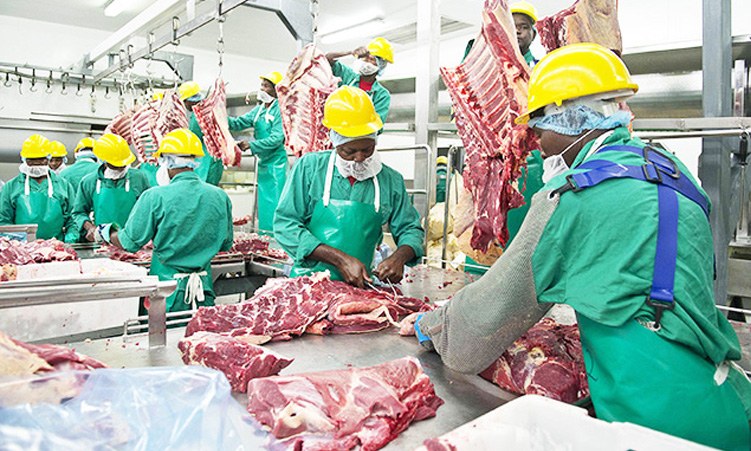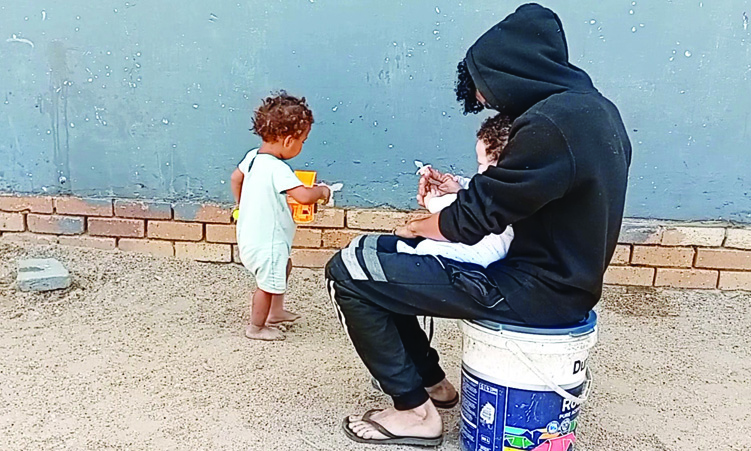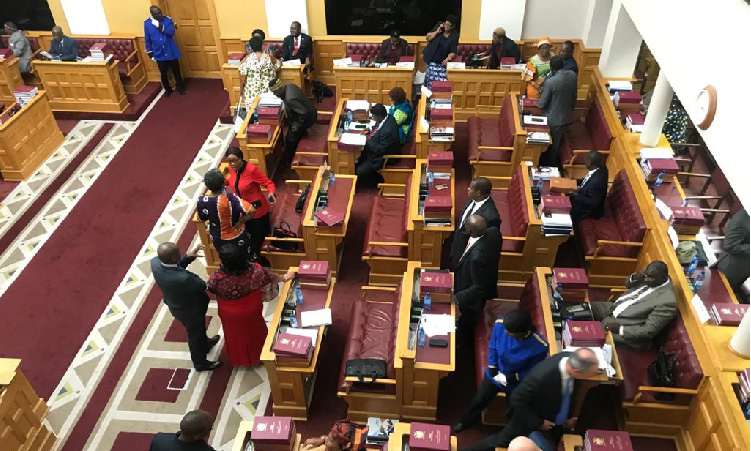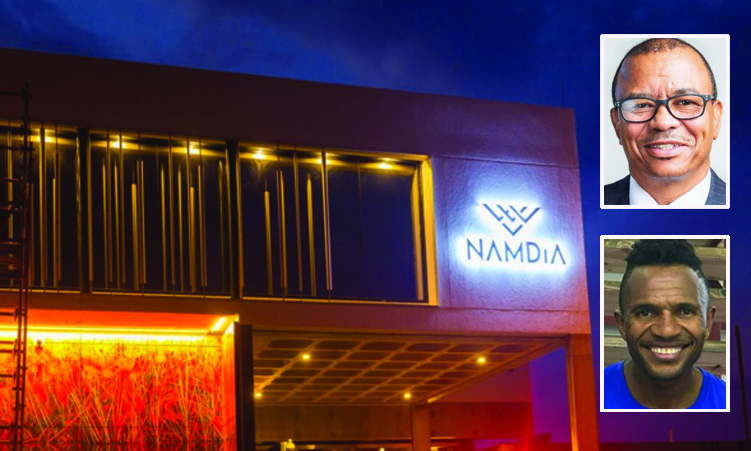WE welcome the letter ‘Reviving the Dark Ages’ (The Namibian, November 13, p. 28) by Victor Kuligin in the spirit of democratic debate. Debate is necessary for us as a nation to move forward and we sincerely hope that many others would join this crucial discussion.
Victor Kuligin argues that we are politically naïve to believe that nationalisation, which would give the Namibian state more control, would not enhance the chauvinistic nationalism of Swapo and lead to further loss of freedoms. Such concentration of power, he argues, would obliterate economic incentive. This would also place freedom of speech and press, freedom of religion and other rights in danger. According to Kuligin, providing free housing, healthcare, etc. would lead to the destruction of the economy like in the former Soviet Union. The ideas of Marx, he claims, have failed everywhere and lead to oppression. Firstly, we would like to invite Kuligin to re-read our letter. For his convenience, we quote what we wrote: ‘Nationalisation without compensation of the banks, mines, factories, corporations and big farms under workers’ control’. [emphasis added]. It is quite interesting that Kuligin left the last part of the sentence out. Perhaps in his rush to defend capitalism he misread the letter. However, our argument is that instead of Big Business running our economy and keeping the profits for a few people, the Namibian workers could rather manage these different parts of the economy in service of all the people. This is happening successfully in countries like Argentina and Venezuela at the moment where workers have taken over factories. We should also say that nationalisation under workers’ control would merely be a step towards the socialisation of the economy. We stand for a post-capitalist workers’ state, not the neo-liberal Swapo state that only serves the elite. Only a participatory democracy from below can counter chauvinism and the concentration of power. This means that the Namibian working class must be the leading force in society.Do we really have to remind Kuligin that capitalism was built on the back of the death of millions through the Trans-Atlantic Slave Trade, colonialism and imperialism? Capitalism only survives because of constant military intervention. Do we really have to remind Kuligin that the financial system of the world’s biggest capitalist economy collapsed just a year ago! That is why the Americans are feverishly printing money but the days of their currency are numbered and their middle class is drowning in debt.We should also say that we are not reviving the Dark Ages simply because we have never left this backward state in Namibia! The daily lives of the Namibian working class is about hunger, unemployment, homelessness, illiteracy, religious fundamentalism, tribalism, etc. If this is not the Dark Ages, what is? The Namibian working class lives in a state of barbarism – to use a phrase of Rosa Luxemburg – another brilliant Marxist who was assassinated by imperialism. The working class feels the heavy boot of capitalism everyday. They are slaves of the economy, shackled by invisible chains. Enlightenment would only come with the Namibian revolution that would begin to sweep capitalism away.Kuligin refers to how wonderful a capitalist society can be. Perhaps he is right if we agree with his cynical tone. Capitalism allows the working class the freedom to starve, the freedom to be unemployed, the freedom to be exploited, the freedom to be superstitious (religion), the freedom to pay exorbitant prices for water and electricity. These are the great ‘freedoms’ of capitalism. Only a capitalist apologist cannot see this tremendous suffering of the majority of the people.With regard to freedom of speech and press, the most instructive example is that of the media empire of Rupert Murdoch which controls public opinion in the West. Rupert Murdoch is more powerful than the British Prime Minister – this is why Margaret Thatcher, the architect of neo-liberalism, consulted him on every big decision when she started her counter-revolution against the working class. The counter-revolution of 1953 in Iran is another salient example of the central role that the ‘free’ press can play in overthrowing a legitimate democratically elected government. In Namibia, NBC television, the Republikein and New Era newspapers are so clearly biased towards their narrow interests. The so-called freedom of the press is abused by elites to push their agenda and this explains the absence of left-wing media in a liberal democracy.We do not want to emulate the Soviet Union but we could certainly learn from that historical experiment. For example, it is now clear that socialism cannot be built in one country only and that the dictatorship of the bureaucracy should be effectively countered. However, Gorbachev was indeed naïve to believe that Western imperialism would help him turn the Soviet Union into a social-democratic paradise. Kuligin speaks of Russia not producing automobiles which is such a typical capitalist focus on the expensive car – so central to the culture of materialism. What were the achievements of the Soviet Union? For us, the greatest achievement of the Soviet Union was the fact that the Red Army defeated Fascism – while the Americans stayed out of the Second World War for as long as possible. The defeat of the Nazis was a far greater gift to humanity than the production of luxury cars. It was also the Soviet Union which opened up the possibilities of space technologyThe ideas of Marx have not been allowed to flower by Western imperialism. From Russia in 1917 to the on-going blockade of Cuba; from Chile, Angola and Mozambique in the 1970s to the never-ending, ongoing harassment of the governments of Bolivia and Venezuela. The list is extremely long. What about the assassinations of great African Marxists such as Amilcar Cabral, Thomas Sankara and Patrice Lumumba? Capitalism only survives through violence. For capitalist apologists, the issue of individual incentive usually means that people are supposedly only motivated by profit/greed; most people, however, are driven by service to humanity and social justice. What about all the brave Namibians who sacrificed themselves in the fight against colonialism? They were not motivated by profit. Here one could also think about the exemplary actions of the thousands of Cuban doctors and soldiers who have volunteered for their internationalist duty. Let us remind ourselves about their huge contribution in defending Angola and fighting at Cuito Cuanavale that led to Namibia’s political independence. We should remain critical, but we have much to learn from Cuba about constructing a post-capitalist society. Kuligin gives a caricature of our position on green issues. Our view is that to stop fossil carbon emissions and nuclear energy is all about saving our planet rather than reverting to the Dark Ages. If we do not make these changes there will be no planet and no humanity that can revert back to anything. This is why we need to save the planet from capitalism so urgently. Instead of constructing a nuclear power plant in Namibia with the assistance of the far-right Hindu government of India, the Swapo government should, for example, rather consider setting up huge solar power panels in our Namib Desert. This could solve our energy problems. Instead of the transnational companies taking the mining profits out of Namibia, why not invest that money in solar energy? Perhaps we should ask the people of Nagasaki and Hiroshima what they think about nuclear power before we go in that direction in this country. The story of that huge crime perpetrated against the innocent civilians of Japan is another example of what Western imperialism is capable of doing. Finally, we would like put forward certain ideas to counter any form of bureaucratic Stalinism: 1. The main political instrument to fight for socialism in Namibia should be a mass workers party; this party should have mass support amongst urban and rural workers, men and women, employed and unemployed, students and radical intellectuals, etc. It should not be the secretive and small revolutionary parties of yesteryear. 2. There should be the right to (openly) form political tendencies in such a mass workers’ party. One of the most important lessons from Gorbachev’s Soviet Union was that any political party should allow the right to tendencies. This is vital in terms of allowing for open debate and constant renewal, the formation of new cadre, permanent transformation and permanent revolution. 3. There should be political independence of the mass organisations, i.e. the trade unions, civics, youth and women’s organisations, etc. This would ensure that different voices are heard and ensure that any ruling political party is held accountable to its mandate from the working class. Mass organisations should not be affiliated to the ruling party. These participatory measures would ensure the highest level of democracy possible. The narrow institutional focus of liberal democracy is hardly a guarantee of participatory democracy at all levels of society, in particular the economic sphere. So, Kuligin, we noted your patronising tone, but we are well aware of the facts. Are you? Let the debate continue.D. Aluteni, R. Kozonguizi and K. BassonKatutura
Stay informed with The Namibian – your source for credible journalism. Get in-depth reporting and opinions for
only N$85 a month. Invest in journalism, invest in democracy –
Subscribe Now!









